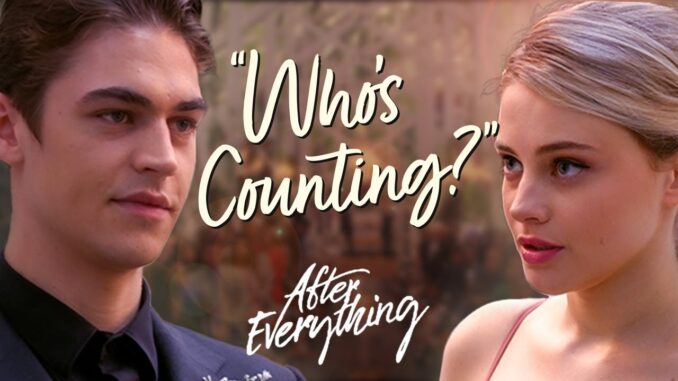
From Wreckage to Redemption: Hardin's Tumultuous Path to Self-Discovery
Hardin Scott, the brooding, tormented protagonist of Anna Todd's "After" series, is a character defined by his profound flaws and the arduous journey he undertakes to overcome them. His evolution is not a clean, linear arc, but a jagged path marked by repeated stumbles, crippling regrets, and the slow, agonizing process of self-discovery. Examining Hardin's transformation, from the initial destruction wrought by his mistakes to the eventual possibility of finding himself and love again, reveals a complex character grappling with trauma and the messy, often painful, process of personal growth.
At the outset, Hardin is a tempestuous force, fueled by a deep-seated rage stemming from his difficult childhood and a profound distrust of intimacy. His initial interactions with Tessa are characterized by manipulative behavior and a cruel bet that shatters her innocence. He cloaks his vulnerability in a shield of cynicism, pushing away genuine connection with sharp words and reckless actions. The discovery of his betrayal, and the devastating impact it has on Tessa, serves as a catalyst for his initial confrontation with the consequences of his actions. This isn't an immediate awakening; rather, it's the first crack in the carefully constructed facade he's built.
The aftermath of his betrayal is where Hardin's journey truly begins. He is consumed by remorse, haunted by the pain he inflicted on Tessa. This regret manifests in a desperate attempt to win her back, often through ill-advised and impulsive actions. He tries to understand the depth of his wrongdoing, forcing himself to confront the ugliness within. He reads literature, seeks therapy (albeit reluctantly), and attempts to piece together the puzzle of his broken past. This period is marked by constant oscillation between progress and relapse. He takes steps forward, driven by the genuine desire to be a better man, only to be pulled back by ingrained patterns of self-sabotage and defensive behavior. His addiction to alcohol, his volatile temper, and his inability to communicate effectively all contribute to the setbacks that litter his path to redemption.
Hardin's journey of self-discovery is intrinsically linked to his evolving understanding of love. Initially, he perceives love as a transaction, a game to be won or lost. His relationship with Tessa, however toxic and fraught with pain, slowly teaches him the true meaning of connection: vulnerability, empathy, and unconditional support. He learns to appreciate Tessa's strength, her unwavering belief in him, and her capacity for forgiveness. This understanding doesn't come easily; he struggles to relinquish control, to trust her, and to believe that he is worthy of her love. He slowly begins to dismantle the walls he has built around his heart, allowing himself to be truly seen, flaws and all.
Even as Hardin strives for self-improvement, the shadow of his past continues to loom large. His relationship with his father, a recovering addict, and the secrets surrounding his mother's past, contribute to his deep-seated insecurities. He has to confront these issues head-on, facing the painful truths about his family history and the impact they have had on his psyche. This process is messy and emotionally draining, but it is essential for him to break free from the cycle of trauma and create a healthier future for himself.
Ultimately, Hardin's journey is not about achieving perfection, but about embracing the messy, imperfect reality of being human. He learns to accept his flaws, to acknowledge his past mistakes, and to strive for continuous growth. While the prospect of fully earning Tessa's trust and love remains uncertain, his commitment to self-improvement and his genuine desire to be a better man suggest a hopeful future. Hardin's story, though fictional, resonates with the universal human experience of confronting our past, overcoming our demons, and striving for redemption. It serves as a reminder that even from the wreckage of our mistakes, it is possible to find ourselves and, perhaps, even love again.
